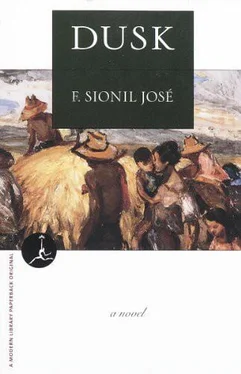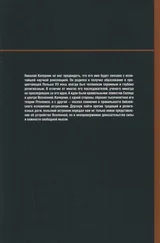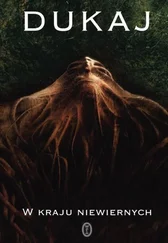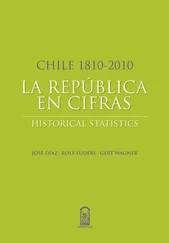He would hug her closer, feel the beating of her heart against his chest, smell the sun and earth on her skin and wonder why, after all these years, the old wound had not healed. He was a healer, but this was one wound he could not close no matter how much he reassured her, no matter how much he showed her by deeds that he loved her.
“I know it,” she said, holding him tight. “Someday you will leave us.”
Neither one was allowed to forget that they were running away and that even in Cabugawan they were not spared the omens of events to come. The news which reached them was of troubled times, of men being killed by the Spaniards in the north and the south. They did not hear the gunfire, so Istak consoled himself with the hope that perhaps they would no longer be hunted. What he had read convinced him that the tides rise and ebb. Though they could erode the shore, the sea itself remained constant, just as the land will be and they who work it, inseparable and perhaps indestructible.
“Whatever ill wind blows, we should not run anymore,” he told Bit-tik, Orang, and his cousins. “We will work as before. If there are men who believe so much in themselves that they can drive away the Spaniards, let them think that way; let them shout themselves hoarse. Our duty is to our families.”
As talk about the wildfire spreading in the south, particularly in Manila, heightened, they looked at the house of the Spanish landlord in Rosales for signs. The house stood there, quiet and impregnable, and the Spaniard’s many tenants continued to leave his mountain share in the bodega behind the house. Could it be that he had the unblemished loyalty of his tenants and was not worried about any Indio recalcitrance? Or could it be that he, like Padre Jose, was unsparing in his criticism of the Indios yet loved them as only a father could?
The harvest that year was very good and the sacks which Istak and the new tenants brought to Don Jacinto were fat and heavy. Their benefactor received them, however, not with great joy but with a face overcast by gloom. Once, as they were about to leave, Don Jacinto took Istak aside to the shade of the balete tree in his yard and presented him with a bottle of new basi . Then, the serious talk. Don Jacinto, gobernadorcillo , the authority of office imprinted all over him, was now merely another Indio in a moment of mourning. “Rizal is dead, Eustaquio. You may never have heard of him, but he is known to many of us who believe in justice. The Spaniards executed him last week at the Luneta …”
Above, the January sky was swept clean and a breeze that careened by brought to them the scent of harvest. A time for rejoicing, and because he loved Don Jacinto, he must now show that one man’s passing had touched him, too, although he did not really know who Rizal was.
“Tell me, Apo, about him.”
“He was a good man, Eustaquio. I think it is about time that I showed you some of the things he wrote — I have them, you know. His novels, copies of La Solidaridad …” Don Jacinto spoke softly. “I am telling you this because I know you are an educated man. But more than this, I know that I can trust you.”
“I hope I deserve that trust, Apo,” Eustaquio said humbly.
“Promise me — do not show them to anyone, and don’t tell anyone they came from me. And when you are through, give them back to me.”
“As you will it, Apo,” Istak said. They took a drink from the bottle. The basi was sweet — it had not fermented long enough and was fit for women only.
“Come,” Don Jacinto said, motioning to Istak to follow him to his house.
Istak had, of course, been in the house a few times but had never been in the bedroom of his benefactor. The house was not as old as the house of the Spanish landlord, but it was of immense proportions, and the bedroom with its giant four-poster bed was bigger than Istak’s whole house. It was not just a bedroom — it was a library as well, and Istak immediately felt comfortable in it. The books lined one wall, but the novels of Rizal were not there. From a wooden trunk under the bed Don Jacinto took two books and a thick envelope with folded newspapers within. He carefully bundled them, then placed them in a sack.
“Be careful,” Don Jacinto said. “And when you are through, let us discuss them all. Maybe it is time we went to Manila together.”
Manila — Royal City, was another world, unreachable, although once upon a time he had dreamed of walking its splendid streets and watching those big boats set sail for distant and exotic ports. Most of all, he would have loved visiting the university, listening to all those venerable men who had amassed wisdom from different lands and who, possessed with goodwill, would impart their knowledge to him.
Now the dream beckoned again. All the way back to Cabugawan, Istak thought of Don Jacinto, why he would talk of bringing a farmer like him to the city.
The trip to Manila, however, was never made. In a few weeks the country was in turmoil. It was then, too, that Istak fully realized what Don Jacinto was.
There was little confusion in Rosales. Life continued on its even course. Even the Spanish landlord, who had all the while stayed in Manila, was not harmed. It had seemed that he was one of the few of his countrymen who had sided with the Indios.
How strange it all was that even when Don Jacinto had revealed himself, Istak still felt nothing but affection for old Padre Jose, who must be dead by now. If not, they must have spared him physical pain. Did not everyone know how good he was? Istak had read Rizal’s novels by then. Though he was profoundly touched by them, he could not damn Padre Jose. There was in the language he learned from the old priest a nobility that affirmed man’s worth. Spain was the personification of granite pride, for how else could the Spaniards, coming as they did from an arid peninsula, build such an empire and still spread the faith? Surely, it was more than gold, exploitation, or superior arms which had moved them. Why did they lose their bearings? Why did they weaken?
In another year, a new ruler — and a new enemy — had come. The Americans had defeated the Spaniards and were now battling the republic’s poorly equipped army. General Aguinaldo had none of the giant horses and the big guns that enabled the Americans to move with speed and overwhelm the puny units that faced them. They were also a ruthless enemy who defiled women and bayoneted children. In a few months, they had taken most of Luzon and were soon advancing to the north. Rosales was not on the main road. In Cabugawan, Istak and his kinfolk waited, wondering if they should flee to the forest.
Well ahead of the Americans, together with the monsoon in July, there came to Rosales in secret a man whom they all held in awe. Only a few saw him, but everyone knew he was in the safest, most comfortable place in Rosales — the house of Don Jacinto. Apolinario Mabini, the famous thinker and ideologue of the revolution, was a cripple. He arrived in the night in a hammock carried by bearers who left as quickly as they had come. As a leader of the new republic, he was a hunted man and surely the Americans would soon track him there.
Istak was faintly curious. The revolution had never really mattered much to him. He had gone over the copies of La Solidaridad and returned them; when his benefactor had asked him what he had found in them that impressed him, he had said quickly that there was great truth in what the ilustrados wrote about being rooted in the land. This truth was self-evident to those who worked the land themselves.
Don Jacinto did not reply; perhaps he understood that there was no measure for love of country except in sacrifice, and why ask the poor for more sacrifices? It was the comfortable, the rich like himself — although Istak did not put it this way — who should express it with their wealth. The poor had only their lives to give.
Читать дальше












